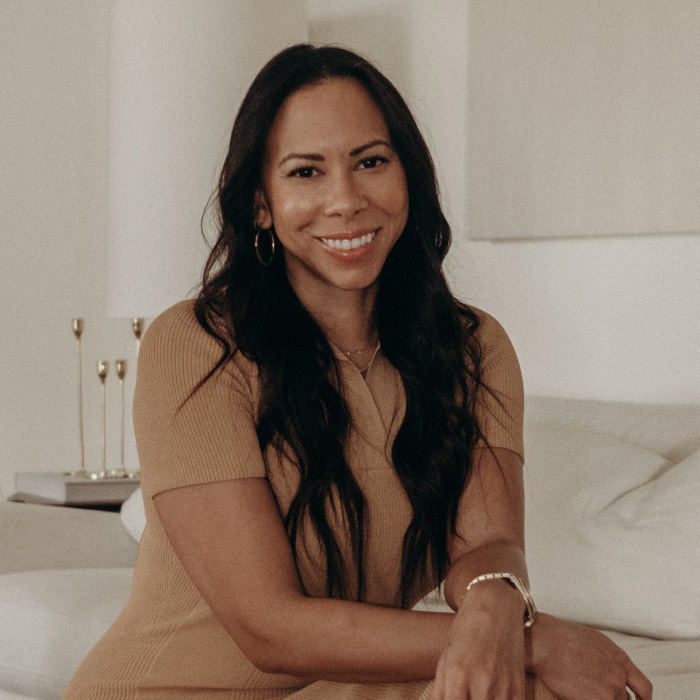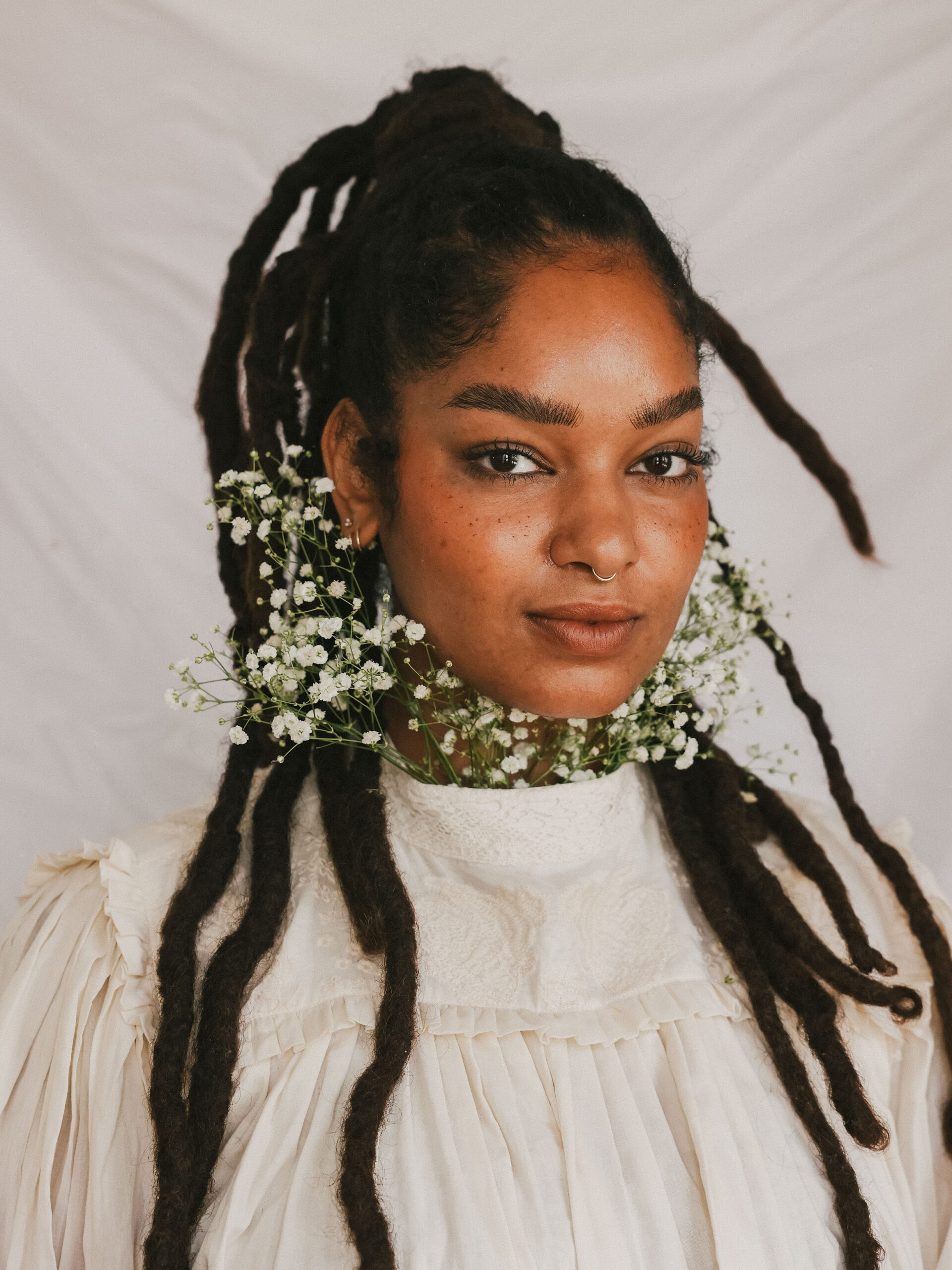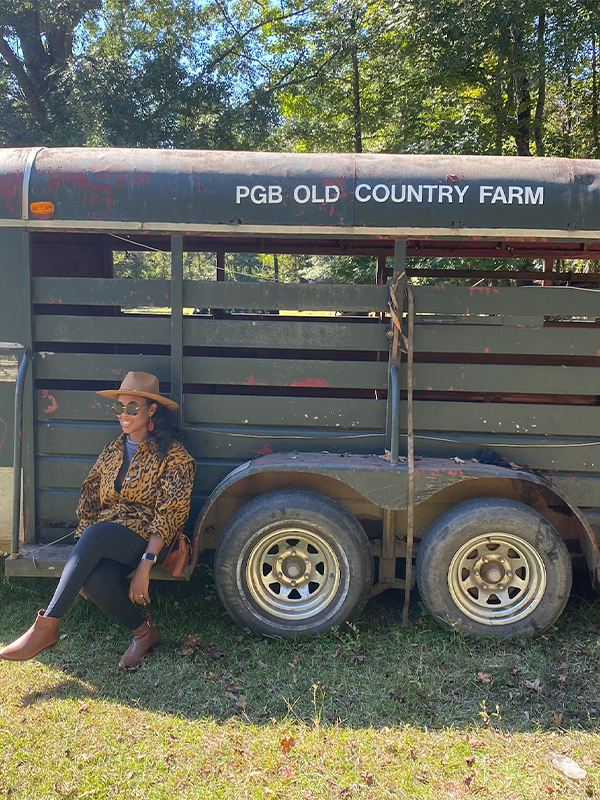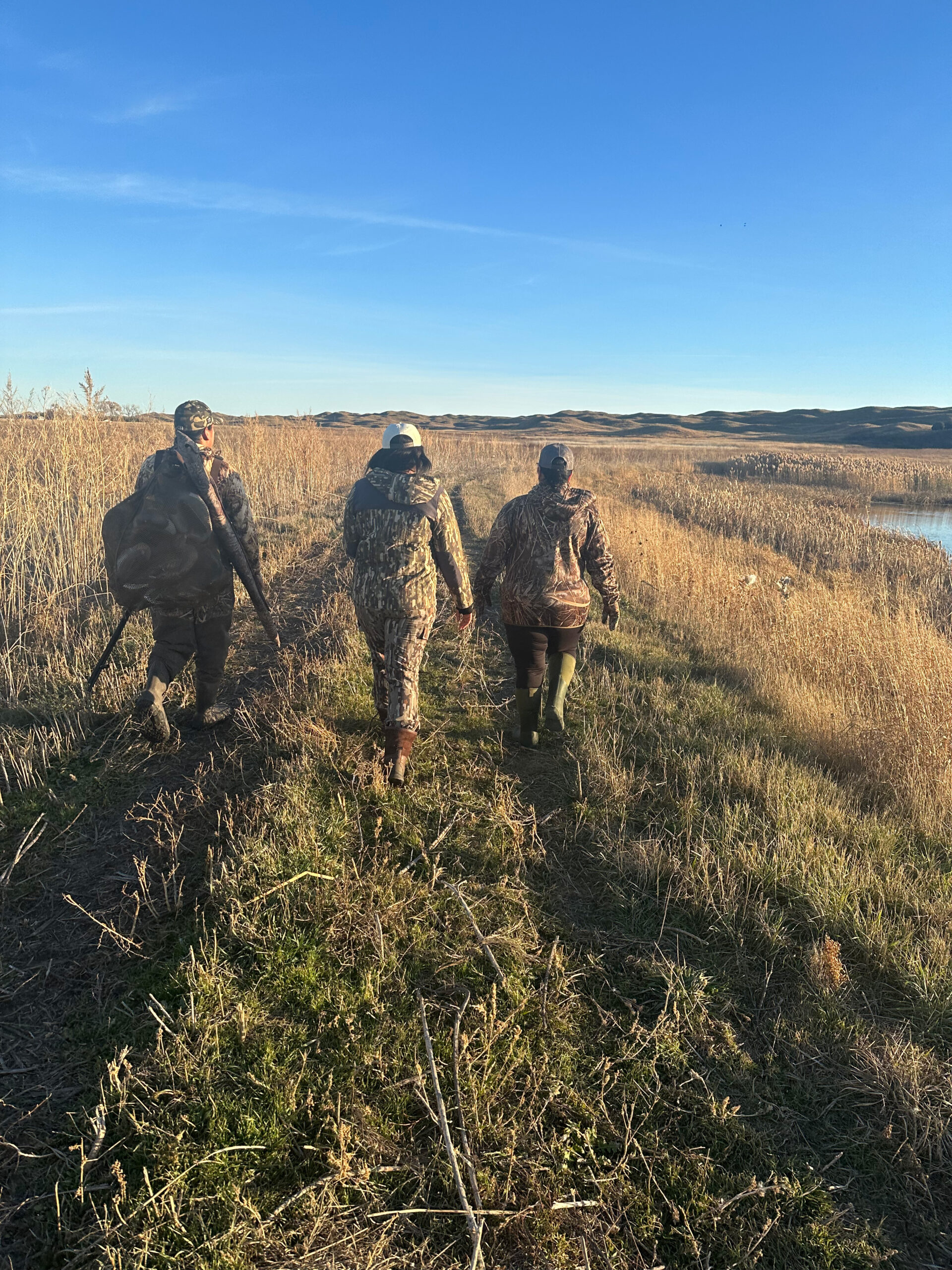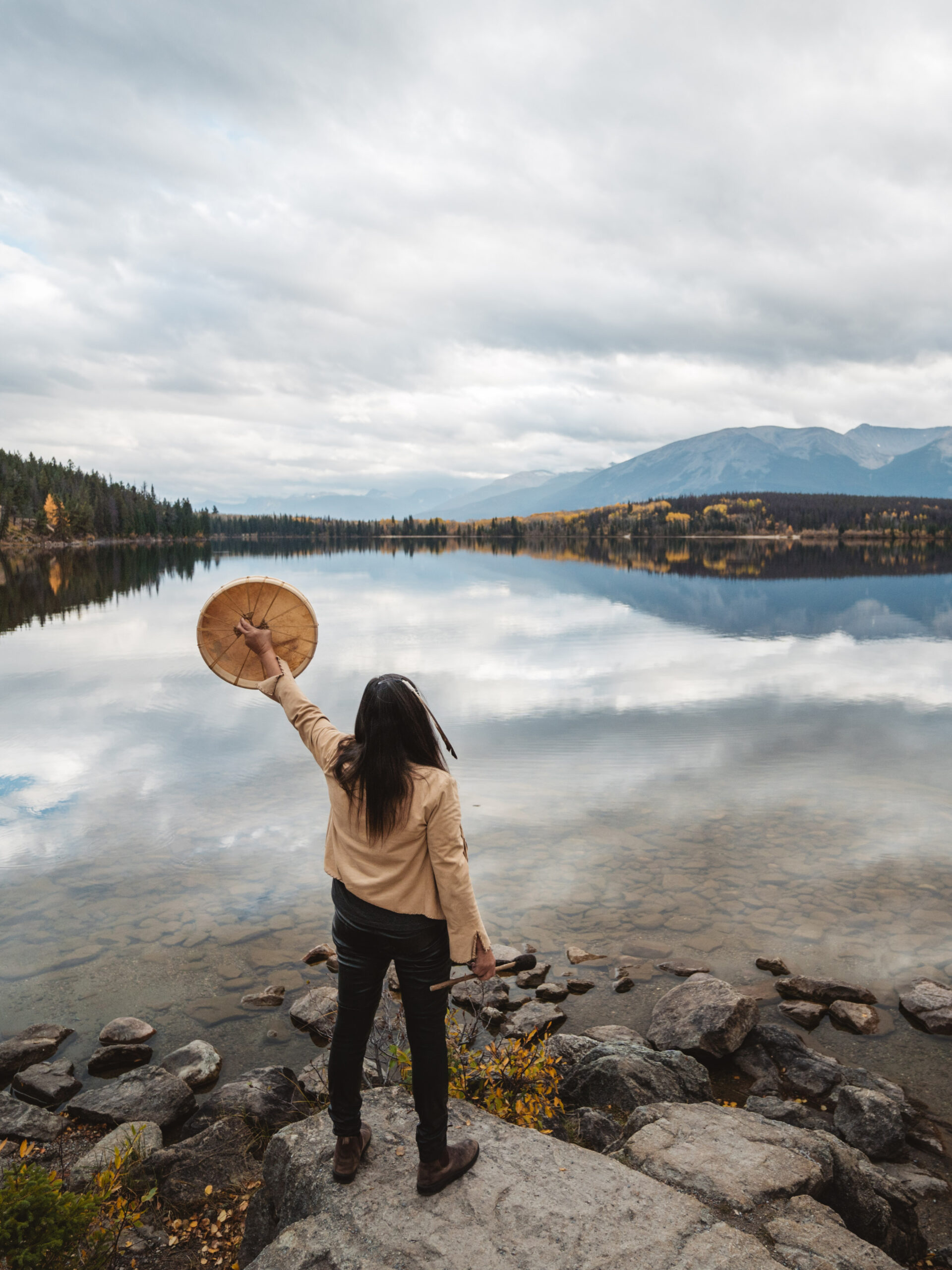If Indy Officinalis has anything to do with it, the future of agriculture is abounding with innovative farming, equitable opportunities, and more people who look like her.
Overlooking an urban skyline on 6th Street in downtown Los Angeles, where the sidewalks below are occupied with tents, mattresses, and LA’s largest homeless population also known as Skid Row, is a rooftop garden filled with rows of fresh produce.
This is a reality made possible by urban farmer Indy Officinalis. Until 2022, she oversaw this effort to feed the city’s unhoused and teach them to grow their own food. Officinalis handed off operations after beginning production for her new National Geographic show (more on that later), but the project is still in action.
“The juxtaposition is interesting,” Officinalis tells Sweet July about the view from this rooftop garden—an initiative powered by the Los Angeles Community Action Network (LA CAN). “You can see downtown where there are banks and fancy restaurants and rooftop gardens that are just supplying food for fancy [restaurant] cocktails. But when you look over one side, you’re seeing unhoused people pushing shopping carts.”

Officinalis, who grew up in “the foothills” of North Carolina, never imagined this life and role for herself. But the curiosity that stemmed from a boarding school elective course on natural health literally planted the seeds for her current work. “I went to Whole Foods and I was like, ‘I’m gonna buy all this organic healthy produce.’ And then I realized how expensive it was.” So instead, she purchased a packet of seeds for $2.95, determined to plant fresh fruits and vegetables herself in her dorm room.
Once she ventured to college at Warren Wilson College in North Carolina in 2011, Officinalis joined World Wide Opportunities on Organic Farms (WWOOF) the next year—a community linking volunteers to global farm work. Soon after, while earning additional degrees from the Appalachia School of Holistic Herbalism and the Blue Ridge School of Herbal Medicine, Officinalis was also managing a variety of community gardens and spending six years foraging for mushrooms across the United States. She completed her studies at the University of North Carolina at Asheville from 2016 to 2019, majoring in health and wellness. “It was very hands-on,” she says. “I was learning on the spot.”
At the end of 2019, Officinalis moved to LA, ready for a life change that would involve flexing her farming skills to more urban turf. But the move also naturally inspired dabbling in other industries, like modeling, which led to Officinalis signing with an agency in 2020. A Black woman with long dreads, she already didn’t fit the image of what people assumed a farmer was. Adding model to her résumé didn’t help. But Officinalis, who in April of 2023 turned 30, hasn’t let it faze her. “I just kind of ignore the naysayers,” she says. “I let my knowledge and experience speak for itself.”
Officinalis understands her presence in modeling and farming as a unique opportunity to shed light on the mutual underrepresentation and the unobvious intersections. “Growing up, I didn’t see enough Black models other than Tyra Banks,” she says. “I also didn’t see a lot of Black landowners.”
The numbers prove her point: Black farmers account for 1.4 percent of the 3.4 million producers in the United States, according to one of the latest studies by the Census of Agriculture, and their agriculture sales make up less than 1 percent of the country’s total.
This is in part due to the discouraging reality that Black farmers face the most difficulty securing farm loans. In 2021, Congress approved a loan forgiveness program that would allocate $4 billion to farmers of color in an effort to address decades of discrimination from the United States Department of Agriculture. But that bill is on hold due to lawsuits from white farmers.
If Officinalis’ new National Geographic show Farm Dreams is any indication, all farmers do not dwell in rural America, and they certainly don’t all look the same. The show, which aired in August of 2023 and is currently streaming on Hulu, spotlights Officinalis working with aspiring farmers to build them sustainable models for their growing projects—from a kelp farm on Alaska waters to an indoor hydroponic farm in New Jersey employing people with autism. Officinalis’ beloved downtown LA farm makes an appearance as well.
“There are so many different ways to grow food,” says Officinalis. “People from different backgrounds are seeing how they can fit into the sustainable food system.”
Her latest clients are the most finicky she’s ever worked with. “At first, they were screaming and shrieking and afraid to touch the soil,” says Officinalis, with a laugh, referring to the seven kindergarten through third grade classes she teaches about gardening skills and techniques. Most students are Black and Brown—and are from surrounding LA neighborhoods including Inglewood, Hawthorne, Compton, and Long Beach. The unique challenges that come with teaching them how to grow their own food, she says, are always worth it.
“[Kids] are the future of farming,” says Officinalis. “And in many ways, they are their own underserved and overlooked community.”
While she continues to educate, Officinalis is also making sure she herself owns a piece of the pie in the trillion-dollar agriculture industry. Last year, she purchased a 3,000 square foot piece of land in LA’s Leimert Park neighborhood, which she’s transforming into a communal farm predominantly composed of West African crops—a nod to her heritage.
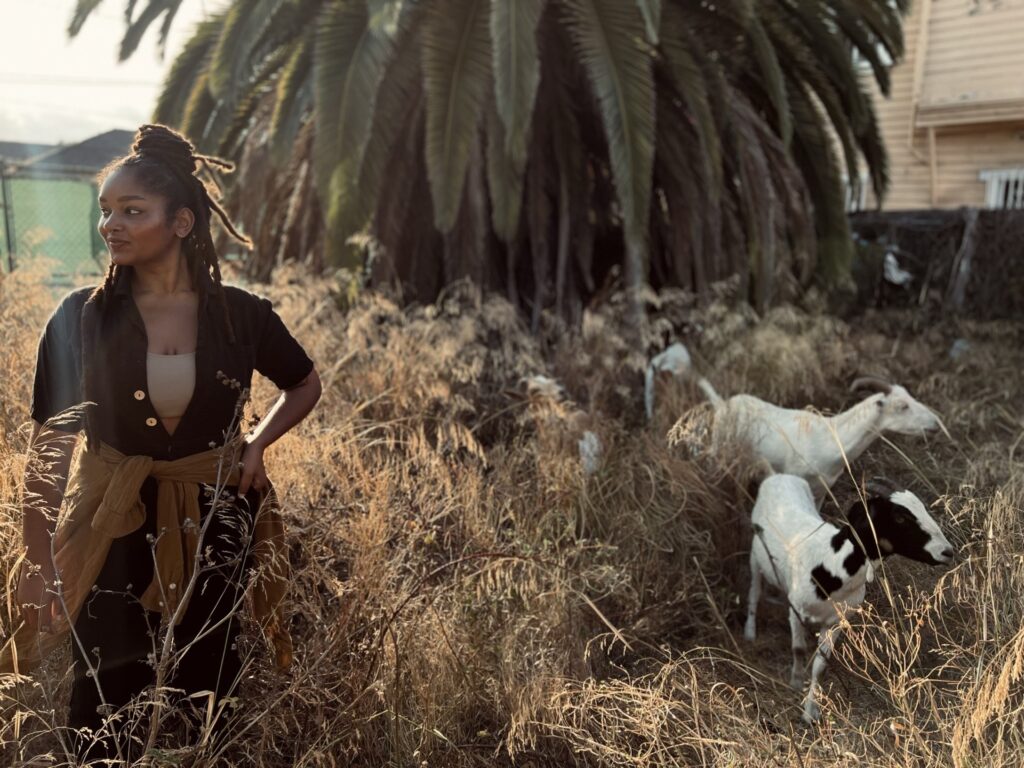
“I really want it to feel like it belongs to the community,” says Officinalis. “Where people of all different backgrounds and skill levels can learn without judgment.”
Of the growing push for land ownership, she says: “I’m always in support of this back-to-the-land movement—tapping into ancestral ways of farming.” But she also acknowledges that much of this industry’s wealth was built on the backs of these ancestors who were exploited for their labor.
For many, “There has been that desire to separate yourself from growing food because it felt like something that was forced, that we shouldn’t have to do anymore,” she says. So she doesn’t blame anyone who is discouraged from this racist, complicated history.
But farming can be a radical act of sovereignty; an opportunity to honor the ancestors whose efforts have shaped the success of agriculture’s present and future. If it’s something people are interested in exploring, she advises they start however and whenever they’re comfortable.
“I encourage people to research how their family grew food,” says Officinalis—and then take back their power from there.



